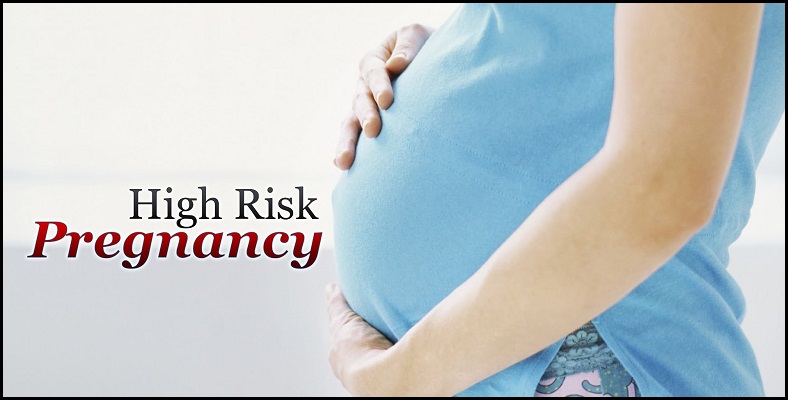
High-Risk Pregnancy Care
- Description
- Faq's
Most of the time having a baby is a natural process. After a full-term pregnancy, a woman goes into labor on or near her due date and gives birth to a healthy baby. A day or two later she leaves the hospital to begin day-to-day life with her growing family. But not all pregnancies go smoothly. Some women experience what doctors refer to as a high-risk pregnancy.A pregnancy is considered high-risk when there are potential complications that could affect the mother, the baby, or both. High-risk pregnancies require management by a specialist to help ensure the best outcome for the mother and baby.
Risk Factors for High-Risk Pregnancy
Reasons that a pregnancy may be considered high risk include:
Maternal Age. One of the most common risk factors for a high-risk pregnancy is the age of the mother-to-be. Women who will be under age 17 or over age 35 when their baby is due are at greater risk of complications than those between their late teens and early 30s. The risk of miscarriage and genetic defects further increases after age 40.
Medical conditions that exist before pregnancy. Conditions such as high blood pressure; lung, kidney, or heart problems; diabetes; autoimmune disease; sexually transmitted diseases (STDs); or chronic infections such as human immunodeficiency virus (HIV) can present risks for the mother and/or her unborn baby. A history of miscarriage, problems with a previous pregnancy or pregnancies, or a family history of genetic disorders are also risk factors for a high-risk pregnancy.If you have a medical condition, it's important to consult your doctor before you decide to become pregnant. Your doctor may run tests, adjust medications, or advise you of precautions you need to take to optimize the health of you and your baby.
Medical conditions that occur during pregnancy.Even if you are healthy when you become pregnant, it is possible to develop or be diagnosed with problems during pregnancy that can affect you and your baby. Two of the more common pregnancy-related problems are:
- Preeclampsia is a syndrome that includes high blood pressure, urinary protein, and swelling; it can be dangerous or even fatal for the mother or baby if not treated. With proper management, however, most women who develop preeclampsia have healthy babies.
- Gestational diabetes is a type of diabetes that develops during pregnancy. Women with gestational diabetes may have healthy pregnancies and babies if they follow the treatment plan from their health-care provider. Usually the diabetes resolves after delivery. However women with gestational diabetes are at increased risk of developing type 2 diabetes.
Pregnancy-related issues.Often a pregnancy is classified as high risk because of issues that arise from the pregnancy itself and that have little to do with the mother's health. These include:
- Premature labor is labor that begins before 37 weeks of pregnancy. Although there is no way to know which women will experience preterm labor or birth, there are factors that place women at higher risk, such as certain infections, a shortened cervix, or previous preterm birth.
- Multiple births means you are carrying more than one baby (twins, triplets, quadruplets, etc.). Multiple pregnancies, which are more common as women are using more infertility treatments, increase the risk of premature labor, gestational diabetes, and pregnancy-induced high blood pressure.
- Placenta previa is a condition in which the placenta covers the cervix. The condition can cause bleeding, especially if a woman has contractions. If the placenta still covers the cervix close to delivery, the doctor may schedule a cesarean section to reduce bleeding risks to the mother and baby.
- Fetal problems, which can sometimes be seen on ultrasound. Approximately 2% to 3% of all babies have a minor or major structural problem in development. Sometimes there may be a family history of fetal problems, but other times these problems are completely unexpected.
Preventing and Treating Pregnancy Complications :
Even if you don't have an existing health problem, many doctors recommend a preconception appointment with your health-care provider to ensure you are as healthy as you can be before you become pregnant. At this appointment your doctor may recommend steps you can take to reduce the risk of certain problems. These include:
- Getting at least 400 micrograms of folic acid daily beginning before and continuing through pregnancy
- Getting proper immunizations
- Eating a healthy diet and maintaining proper weight
- Getting regular physical activity, unless advised otherwise by your doctor
- Avoiding cigarettes, alcohol, and drugs (except for medications approved by your doctor)
- See your doctor regularly
If your pregnancy is considered high risk, your doctor may refer you to a perinatologist. Also called a maternal-fetal medicine specialist, a perinatologist is an obstetrician with special training in high-risk pregnancy care. This specialist will work with your other doctors, nurses, and other health-care professionals to ensure the best possible outcome for both you and your baby.
